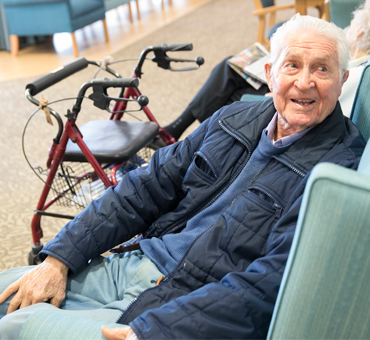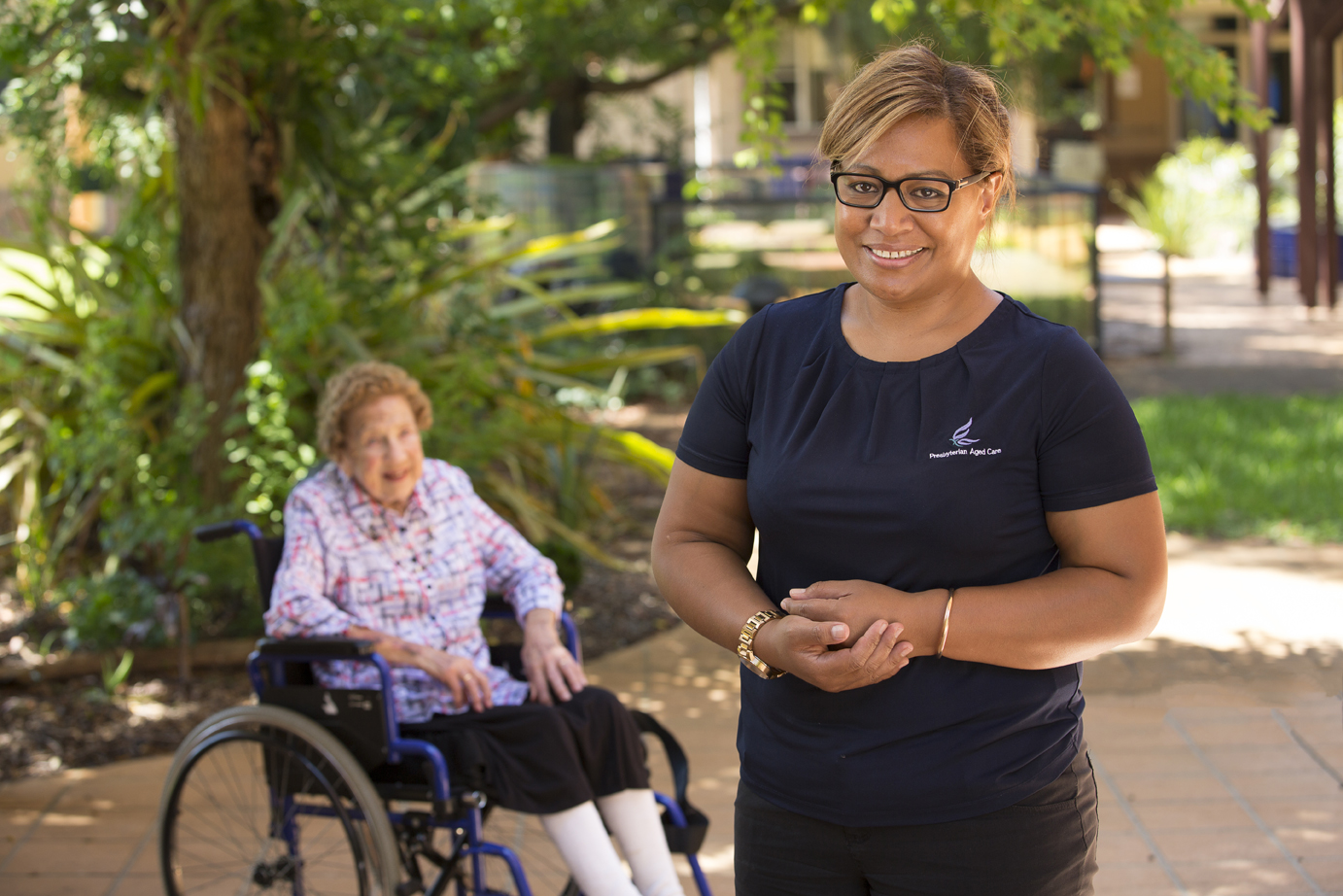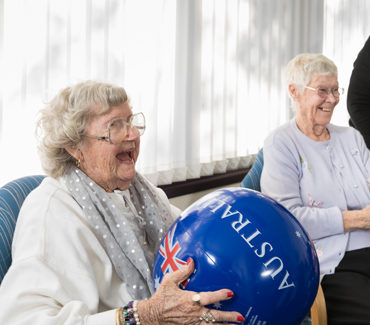Our care is tailored especially for you and your needs

Whether you’re now finding things too difficult to stay living at home, or you have a medical condition, or you’ve had a fall, when you move into PAC residential aged care you will receive the right care for your needs.
If things change with your health down the track, be assured that in consultation with you and your family, we can adjust your care to the specific help you need.
There’s so much to consider when you’re thinking about residential aged care for yourself or a loved one. It can be overwhelming to know where to start.
Presbyterian Aged Care (PAC) can help you at every single step. You can call us at any stage and we’ll find you the best care and place to live.
We welcome residents from all religions and faiths.
“Ageing in Place”
“Ageing in place” helps residents to stay in the same location, if and when their care needs increase.
Once you’ve moved from your family home or long-term residence, it’s usually beneficial not to move a second time.
We’re committed to ageing in place, so you can stay in your familiar surroundings – even if your care needs change.
There are many benefits to staying in your familiar surroundings.
You’ll have the same friends and care staff. Emotionally, socially, physically and spiritually this is a much better care practice for you and your family as it is holistic and takes into consideration all of your needs as a person.
Sometimes though, there are occasions where a person’s needs are better met by moving them to a specialised area.
This is always discussed with you and your family first.
Watch Val’s heart-warming true story about just one of our clients who have benefitted from our “Ageing in Place” practices.
Low Care – High Care
Aged care homes used to be classified as “Low Care” or “High Care”, only providing care to the relevant need levels. These terms no longer apply across all of aged care, though they still apply to respite care.
You might hear people using these terms in regards to respite, so here’s a brief explanation:
- Low Care is for people with reduced mobility or independence who require less complex or intensive permanent care and support.
- High Care is for people with greater need for nursing support and other care on a more intense basis.
Watch Betty’s story to see how residents with high levels of independence but some niggling physical care needs enjoy the benefit of residential care.
Dementia
Our team is skilled in caring for people with various types of dementia
Dementia is a word used to cover a wide range of symptoms that are most commonly found in older people.
Symptoms of dementia can include having difficulty with memory, thinking, language, and understanding.
Dementia is often confused with Alzheimer’s disease and many people use these two terms interchangeably. There are many causes of dementia, Alzheimer’s being one.
There are many different types of dementia and they require different approaches to care
Presbyterian Aged Care is highly experienced in caring for older people with one or more of the wide varieties of dementia. Our staff and Allied Health teams are specially trained to care for people with dementia in a way that allows them live life to the full.
For our residents who might wander, we ensure a safe and comforting environment that allows freedom of movement within the home. We also have secure gardens so our residents with dementia can enjoy being outdoors.
Many of our homes offer specially designed dementia care units
These include:
- Ashfield
- Drummoyne
- Thornleigh
- Paddington
- Walcha
Watch these videos to see how we nurture residents with forms of dementia reach their full potential
Respite
We know that sometimes you need a break
If you’re caring for a loved one at home, we understand that sometimes you need to look after your own wellbeing and needs too.
Whether you need to take some well-deserved rest, attend to your own medical needs, or to go away to recharge, PAC can give your loved one care in one of our residential facilities while you catch up.
Respite provides short-term stays within one of our residential aged care homes. Respite is ACAT assessed and can be for up to 63 days.
We welcome the opportunity to assist you with respite. Our depth of experience and training in this area ensures your loved one settles in with ease.
Our caring and compassionate staff have an understanding of the change the older person is experiencing and a great track record of helping people feel welcome and secure as they settle into their temporary home.
Call us on 1800 722 679 to discuss respite care for your loved one in one of our beautiful residential aged care homes.
Palliative Care
Giving dignified and compassionate care for your loved ones at the end of life
When our loved ones enter a period of physical decline and there is no prospect of recovery before they pass away, they need specialised medical, psychological, and spiritual care.
Palliative care is given by Presbyterian Aged Care to people at the end of their life.
Palliative care doesn’t hasten or delay your loved one’s passing away.
Our focus for palliative care is to improve people’s quality of life by increasing comfort and decreasing pain and discomfort.
We also provide support and care for your family
Presbyterian Aged Care understands how challenging and emotional this time can be for family and friends.
We work hard to ensure care with utmost compassion and dignity, as well as Chaplaincy and emotional support for you and your family.
Presbyterian Aged Care recognises the God given dignity of every person. We have excellent palliative care practices for both our residents and people who care for them during this time.
Watch these videos to see how even a nurse with insider knowledge thinks the care we gave her father in his final weeks was “just wonderful”.







